Quantum computing is a cutting-edge field of research that leverages the ideals of quantum mechanics to develop robust computing systems with the potential to outperform classical computers. Unlike traditional computers that use bits to represent information as 0 or 1, quantum computers utilize quantum bits or qubits, which can exist in a superposition of states, enabling complex computations to be performed simultaneously.
With their ability to process vast amounts of data and solve complex problems exponentially faster, quantum computers have the potential to revolutionize industries such as cryptography, drug discovery, optimization, and machine learning. The race to build practical and scalable quantum computers has gained significant momentum recently, with major advancements in hardware, algorithms, and applications.
Understanding Quantum Mechanics
Quantum mechanics is a rudimentary theory in physics that describes the behavior of matter and energy at minuscule scales, such as atoms and subatomic particles. It provides a framework for understanding the unique properties of quantum systems that form the foundation of quantum computing.
- Superposition: One of the defining features of quantum mechanics is the concept of superposition. Unlike classical bits that can be in only one form (0 or 1) at a time, quantum bits, or qubits, can exist simultaneously in a superposition of multiple conditions. This means that a qubit can represent both 0 and 1 simultaneously, allowing for parallel computations and the potential for exponential speedup in specific algorithms.
- Entanglement: Another fascinating property of quantum mechanics is entanglement. When two or more qubits become entangled, their states correlate regardless of distance. This correlation enables the manipulation of one qubit to instantaneously affect the form of another, even if they are physically separated. Entanglement is crucial in quantum computing, allowing for powerful operations and increased computational capacity.
- Measurement and Uncertainty: In quantum mechanics, measuring a quantum system causes its state to collapse into a specific value. Before measurement, a qubit exists in a superposition of forms, but upon size, it “chooses” a solid state. This measurement process introduces inherent uncertainty in quantum systems, represented by probabilities rather than determinism.
- Quantum Gates and Quantum Circuits: To perform computations with qubits, quantum gates are used. These gates manipulate qubits’ quantum states, enabling superposition, entanglement, and measurement operations. Quantum circuits are composed of a series of quantum gates arranged in a specific order to execute a computation.
By understanding these foundational principles of quantum mechanics, we can appreciate the unique properties of quantum systems and their potential for quantum computing.
Quantum Computing Hardware
Quantum computing hardware refers to the physical systems and components that enable manipulating and controlling quantum bits (qubits) to perform quantum computations. Building and maintaining stable qubits is a significant challenge due to their sensitivity to external disturbances and the need to maintain quantum coherence.
- Qubits: These are the building blocks of quantum computers. They are the quantum analog of classical bits and can exist in a superposition of states. Qubits can be realized using various physical systems, such as superconducting circuits, trapped ions, topological states, or photonics. Each qubit has unique characteristics and challenges associated with its implementation, such as coherence time and error rates.
- Quantum Gates: Quantum gates are analogous to classical logic gates and are used to manipulate the states of qubits. They perform operations such as superposition, entanglement, and measurement. Standard quantum gates include the Hadamard, Pauli gates (X, Y, and Z), CNOT (controlled-NOT), and Toffoli. The implementation of these gates depends on the specific physical platform used.
- Quantum Register: A quantum register collects qubits, storing and processing information. It can be seen as the quantum equivalent of a classical computer’s memory. Quantum registers allow for complex quantum computations by manipulating the states of multiple qubits simultaneously.
- Quantum Interconnects: Quantum interconnects are essential for transmitting information between qubits. They enable the creation of entanglement and the execution of quantum gates on distant qubits. Various methods, such as microwave resonators, optical fibers, or ion traps, establish connections between qubits.
- Cryogenic Systems: Quantum computers operate at shallow temperatures, typically near absolute zero, to reduce environmental noise and maintain the delicate quantum states of qubits. Cryogenic systems, including dilution refrigerators and cryostats, achieve and sustain these ultra-cold temperatures.
- Control and Measurement Systems: Quantum computers require sophisticated control and measurement systems to accurately manipulate and read qubits’ states. These systems precisely control quantum gates, perform measurements, and collect data during quantum computation.
- Error Correction: Quantum systems are prone to mistakes due to environmental noise and errors in hardware. Error correction techniques, such as quantum error correction codes, are employed to detect and correct errors and increase the reliability of quantum computations.
Quantum computing hardware continuously evolves as researchers and engineers strive to improve qubit stability, coherence times, and error rates. Advances in hardware technologies are essential for realizing practical and scalable quantum computers capable of solving real-world problems.
Quantum Algorithms and Applications
Quantum computing offers the potential to solve computational problems more efficiently than classical computers.
- Shor’s Algorithm: Shor’s algorithm is a famous quantum algorithm that has the potential to factor large numbers exponentially faster than any other known classical algorithm. Factoring large numbers is essential in cryptography, forming the basis of many encryption schemes. Shor’s algorithm has significant implications for breaking cryptographic systems, sparking interest in post-quantum cryptography to develop algorithms resistant to quantum attacks.
- Grover’s Algorithm: Grover’s algorithm is a quantum search algorithm that provides a quadratic speedup over classical search algorithms. It can be used to search an unsorted database for a specific item in O(sqrt(N)) time, compared to O(N) time in classical search algorithms. Grover’s algorithm has applications in optimization, database searching, and solving unstructured search problems.
- Quantum Simulation: Quantum simulation aims to leverage the power of quantum computers to simulate and understand complex quantum systems, such as chemical reactions and materials. Quantum simulation can revolutionize drug discovery, material design, and understanding fundamental physics phenomena.
- Quantum Machine Learning: Quantum machine learning combines the principles of quantum computing and classical machine learning. It explores using quantum algorithms to improve the efficiency and performance of machine learning tasks, such as pattern recognition, clustering, and optimization. Quantum machine learning algorithms hold promise for solving complex problems in areas like data analysis and artificial intelligence.
- Quantum Optimization: Quantum optimization algorithms seek to find the optimal solution among a considerably large set of possibilities. They have applications in supply chain management, financial portfolio optimization, and traffic routing. Quantum optimization algorithms aim to overcome the limitations of classical optimization algorithms by leveraging quantum parallelism and quantum search techniques.
- Quantum Chemistry: Quantum chemistry simulations are computationally intensive tasks that involve modeling and simulating chemical reactions and properties at the quantum level. Quantum computers can offer more accurate and efficient simulations, allowing for the design of new materials and drugs, catalyst optimization, and understanding of chemical reactions at a fundamental level.
These are just a few examples of quantum algorithms’ vast potential and applications. As quantum computing advances, more quantum algorithms are being discovered and tailored to specific problem domains. Quantum algorithms have the potential to revolutionize areas ranging from cryptography and optimization to chemistry and machine learning, opening new frontiers for scientific exploration and practical problem-solving.
Challenges and Future Outlook
While quantum computing holds great promise, significant challenges must be addressed to realize its full potential.
- Qubit Stability and Decoherence: Quantum systems are susceptible to environmental disturbances, leading to a loss of coherence and errors in quantum computations. Maintaining qubit stability and reducing decoherence is a significant challenge in quantum computing. Error correction techniques and improvements in qubit designs are being explored to mitigate these issues.
- Scalability: Building practical and scalable quantum computers with many qubits is complex. It requires addressing technical challenges like qubit connectivity, error rates, and control systems. Advancements in hardware, quantum error correction, and architectural designs are crucial for achieving scalable quantum computers.
- Error Correction: Error rates in quantum systems must be significantly reduced for reliable quantum computation. Implementing error correction codes and fault-tolerant operations is essential for mitigating errors and improving the reliability of quantum algorithms. Developing robust error correction techniques is an active area of research.
- Quantum Software and Programming Languages: As quantum hardware evolves, developing efficient and user-friendly quantum software and programming languages becomes crucial. Designing high-level programming languages and tools that abstract the complexities of quantum systems will enable a broader community to engage in quantum computing research and application development.
- Access to Quantum Resources: Quantum computing requires specialized infrastructure, including highly controlled environments and hardware. Access to quantum resources, such as quantum computers and simulators, can challenge researchers and developers. Efforts are underway to provide cloud-based quantum computing resources and foster collaboration in the quantum community.
- More Stable and Scalable Quantum Computers: Advances in qubit designs, error correction, and control systems will lead to more stable and scalable quantum computers. Increasing the number of qubits and improving qubit coherence times will enable more complex quantum algorithms and larger-scale simulations.
- Hybrid Quantum-Classical Computing: Hybrid quantum-classical computing models, where classical and quantum systems work together, show potential for solving complex problems efficiently. These models leverage the strengths of both classical and quantum computing, offering a practical approach to harnessing the power of quantum systems.
- Quantum Network and Communication: The development of quantum networks and communication protocols will allow the distribution of quantum information across large distances. Quantum cryptography and secure quantum communication are active research areas with the potential to revolutionize secure communication.
- Practical Applications and Industry Adoption: As quantum computers become more powerful and accessible, their practical applications across industries will likely expand. Initiatives such as finance, materials science, healthcare, and logistics are expected to benefit from quantum computing in optimization, drug discovery, supply chain management, and more.
While there are challenges to overcome, the future of quantum computing is bright. Ongoing research and technological advancements pave the way for more stable and scalable quantum computers. With increased accessibility to quantum resources and quantum software development, the adoption of quantum computing in various domains is expected to accelerate, leading to transformative breakthroughs in computational power and problem-solving capabilities.
Implications and Ethical Considerations
As quantum computing advances, it brings forth a range of implications and ethical considerations that must be carefully examined. Here, we explore some of the critical areas of concern:
- Security and Cryptography: Quantum computers potentially threaten current encryption methods, which rely on the difficulty of factoring large numbers. With the development of Shor’s algorithm, quantum computers could break commonly used cryptographic algorithms, compromising data security. This raises the need for post-quantum cryptography, which focuses on developing encryption schemes resistant to quantum attacks.
- Privacy and Data Protection: The immense computational power of quantum computers has the potential to decipher sensitive information, leading to privacy concerns. Quantum-resistant encryption algorithms are essential to safeguard personal data and protect individual privacy in the future with quantum computing.
- Ethical Use of Quantum Computing: As with any powerful technology, the ethical use of quantum computing is paramount. It is vital to consider the ethical implications of applications developed using quantum computing, ensuring they align with fairness, transparency, and accountability principles. Responsible and ethical use should be promoted to avoid unintended consequences and potential misuse of quantum computing capabilities.
- Socioeconomic Impact: Quantum computing has the potential to reshape industries and economies. It may create new job opportunities and drive innovation, but it could also disrupt existing job markets. An important consideration is ensuring a smooth transition and addressing potential socioeconomic disparities from adopting quantum computing.
- Access and Equity: Quantum computing resources, such as quantum computers and simulators, are currently limited and accessible to a select few. Ensuring equitable access to quantum resources is crucial to avoid exacerbating technological disparities. Steps should be taken to promote inclusivity and democratize access to quantum computing technologies and education.
- Environmental Impact: Quantum computing requires highly specialized, energy-intensive infrastructure, including cryogenic systems and powerful computational resources. The ecological impact of scaling up quantum computing technologies should be carefully considered, and efforts should be made to develop sustainable and energy-efficient solutions.
- Intellectual Property and Governance: The development and commercialization of quantum technologies raises questions about intellectual property rights and governance frameworks. Establishing clear legal and regulatory frameworks will be necessary to address issues related to intellectual property, data ownership, and international cooperation in quantum computing.
Addressing these implications and ethical considerations requires collaboration among researchers, policymakers, and the wider community. Open dialogue, multidisciplinary approaches, and responsible development and deployment of quantum technologies are essential to ensuring the ethical and beneficial use of quantum computing for the betterment of society.
Applications of Quantum computers in the real world
Quantum computers have shown promise in simulating chemical reactions and properties, enabling advancements in drug discovery and materials science. For example, researchers used a small-scale quantum computer to simulate the energy properties of a small molecule, beryllium hydride. The simulation provided insights into the molecule’s behavior, demonstrating the potential for quantum computers to accelerate the development of new drugs and materials.
Quantum computing offers the potential to solve complex optimization problems more efficiently. For instance, a car manufacturing company collaborated with a quantum team to explore how quantum computing could optimize the placement of electric vehicle charging stations in urban areas. They aimed to make electric vehicle travel as short as possible and reduce overall charging times to create more effective and sustainable transportation systems.
Quantum computing holds promise in finance for portfolio optimization. For instance, a finance firm partnered with a manufacturing company to explore how quantum algorithms could improve the optimization of investment portfolios. By leveraging quantum computing’s ability to handle large-scale optimization problems, they aimed to enhance portfolio diversification, risk management, and investment strategy.
Quantum machine learning is an emerging field combining quantum computing principles and classical machine learning. Researchers have developed a quantum machine learning algorithm, the Quantum Approximate Optimization Algorithm (QAOA). QAOA has been applied to various problems, including clustering, image classification, and recommendation systems. These applications demonstrate the potential for quantum machine learning to enhance pattern recognition and data analysis tasks.
As quantum computers continue to advance, we can expect more case studies to emerge, highlighting the practical applications and benefits of quantum computing in solving complex problems that are challenging for classical computers. These case studies showcase the potential impact of quantum computing across different industries. While the field is still in its early stages, these examples demonstrate the progress and potential for quantum computing to revolutionize various domains.
Conclusion
Quantum computing represents a groundbreaking paradigm shift in the world of computing. By harnessing the principles of quantum mechanics, quantum computing has the potential to unlock unprecedented computational power and tackle complex problems that are beyond the reach of classical computers.
In conclusion, quantum computing holds immense promise for the future of computing. As the field continues to evolve and overcome challenges, we can expect to witness groundbreaking advancements that will revolutionize industries, accelerate scientific discoveries, and solve problems that were once considered intractable. Quantum computing is poised to shape the future of technology, and its potential impact is genuinely awe-inspiring.



